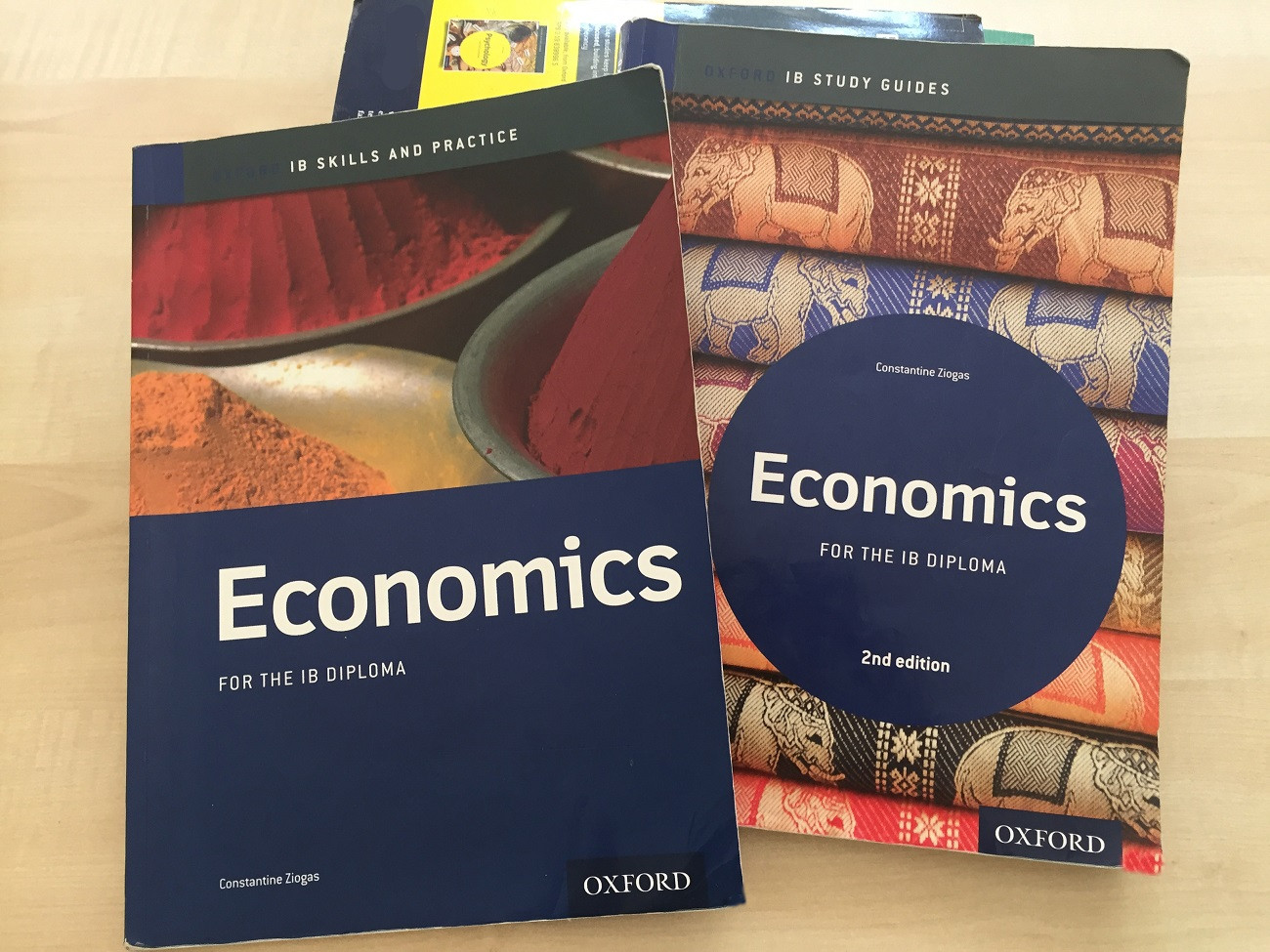Course Description
- Economics is a two year IB course designed to give students an understanding of economic concepts, theories, principles, practices and skills. A fundamental feature of the course is based on integrating and linking the material in order to give students a holistic overview. In addition, the economics course encourages students to develop international perspectives, fosters a concern for global issues, and raises students’ awareness of their own responsibilities at a local, national and international level. The course also seeks to develop values and attitudes that will enable students to achieve a degree of personal commitment in trying to resolve these issues, appreciating our shared responsibility as citizens of an increasingly interdependent world.
- The course will be taught through 9 key concepts: scarcity, choice, efficiency, equity, economic well-being, sustainability, change, interdependence and intervention.
Objectives:
- Demonstrate knowledge and understanding of current economic issues and data.
- Apply economic concepts and theories to real-world situation, identify and interpret economic data, demonstrate the extent to which economic information is used effectively in particular contexts.
- Demonstrate synthesis and evaluation by examining economic concepts, theories and examples to construct and present and arguments.
- Discuss and evaluate economic information and theories by selecting, interpreting and analysing appropriate extracts from the news media.
- Develop an understanding of microeconomic and macroeconomic theories and concepts and their real-world application.
- Develop an appreciation of the impact on individuals and societies of economic interactions between nations.
- Develop an awareness of development issues facing nations as they undergo the process of change.
Topics to be Covered:
Unit 1: Introduction to Economics
- What is economics?
- How do economists approach the world?
Unit 2: Microeconomics
- Competitive markets: demand and supply
- Elasticity
- Government intervention Market failure
- Economics of the Environment (HL only)
- Theory of the firm and market structures (HL only)
Unit 2: Macroeconomics
- The level of overall economic activity
- Aggregate demand and aggregate supply
- Macroeconomic objectives Fiscal policy
- Monetary policy
- Supply-side policies
- Economics of inequality and poverty
Unit 3: The Global Economy
- International trade
- Exchange rates
- The balance of payments
- Economic integration Terms of trade (HL only)
- Development and Sustainability
ATL Skills:
Thinking: Developing critical thought, posing problems, asking questions, implementing strategies, evaluating, analysing, integrating material.
Communication: The ability to evaluate, analyse and discuss in written form, to interpret economic issues clearly, and use technical and analytical tools to present a problem.
Social: Collaborative work through teams and class discussions.
Self-management: Setting goals, keeping up, managing time and tasks effectively
Research: Through the Internal Assessment, media articles, are analyzed and evaluated; recommendations are made and limitations of the research considered.
Assessment Objectives:
- Knowledge and understanding (AO1)
- Command terms: Define, Describe, List, Outline, State
- These terms require students to learn and comprehend the meaning of information.
• Demonstrate knowledge and understanding of specified content
• Demonstrate knowledge and understanding of the common SL/HL syllabus
• Demonstrate knowledge and understanding of current economic issues and data
• At HL only: demonstrate knowledge and understanding of the extension topics
2. Application and analysis (AO2)
• Command terms: Apply, Comment, Distinguish, Explain, Suggest
- These terms require students to use their knowledge and skills to break down ideas into simpler parts and to see how the parts relate.
- Apply economic concepts and theories to real-world situations
• Identify and interpret economic data
• Analyse how economic information is used effectively in particular contexts
• In the internal assessment task: explain the link between key economic concepts and economic commentaries
• At HL only: demonstrate application and analysis of the extension topics
3. Synthesis and evaluation (AO3)
• Command terms: Compare and Contrast, Discuss, Evaluate, Examine, Justify, Recommend, To what extend
- These terms require students to rearrange component ideas into a new whole and make judgments based on evidence or a set of criteria.
• Use economic concepts and examples to construct and present an argument
• Discuss and evaluate economic information and theories
• At HL only:
▪ demonstrate economic synthesis and evaluation of the extension topics
▪ select and use economic data using economic theory to make policy recommendations.
4. Use and application of appropriate skills (AO4)
- • Command terms: Calculate, Construct, Derive, Determine, Draw, Identify, Label, Measure,Plot, Show, Show that, Sketch, Solve
- These terms require students to demonstrate the selection and use of subject-specific skills and techniques.
- Produce well-structured written material, using appropriate economic theory, concepts and terminology
• Produce and use diagrams to help explain economic theory, concepts and real-world issues
• Select, interpret and analyse appropriate extracts from the news media
• Interpret appropriate data sets
• Use quantitative techniques to identify, explain and analyse economic relationships
Assessment
IB Assessment (Exams are externally assessed, research project/commentary are internally assessed)
|
SL |
HL |
|
|
Paper 1 |
30% |
20% |
|
Paper 2 |
40% |
30% |
|
Paper 3 |
30% |
|
|
Internal Assessment |
30% |
20% |
